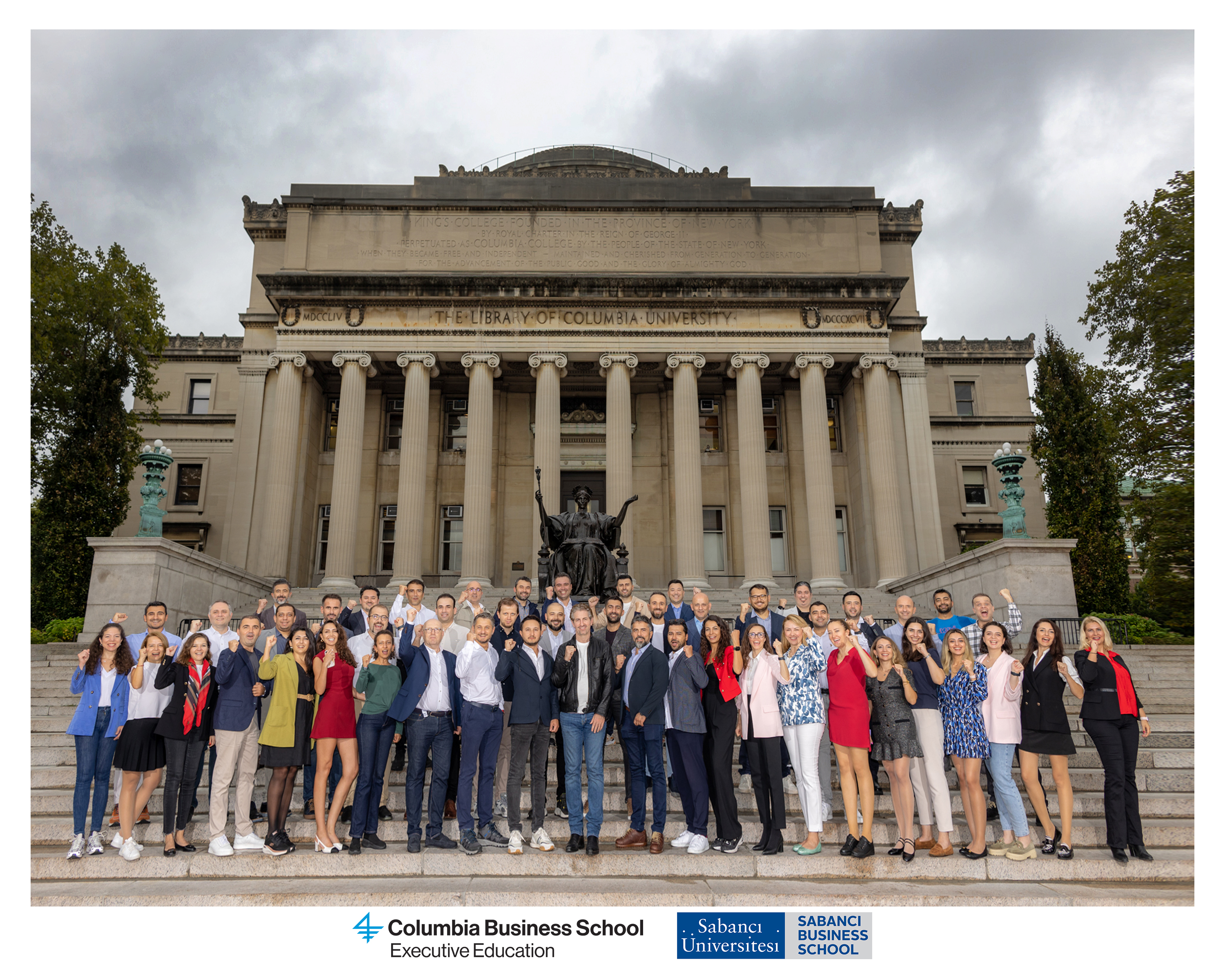Executive MBA
Advance As A Leader with an Executive MBA
Sabancı University offers not only a prestigious diploma, but also a transformative experience that will shape your career and future. As Turkey's leading business school, Sabancı University, in collaboration with a global brand like Columbia Business School (CBS), provides you with an international perspective.
While learning from distinguished faculty members of both Sabancı University and CBS, you will also have the opportunity to turn theoretical knowledge into practice through an application-based learning model. By networking with successful executives from various industries, you will enhance your strategic thinking, innovation, and leadership skills.
Sabancı EMBA prepares you to be a leader not only for today but also for tomorrow.
Be part of this transformation to make a leap in your career and stand out in global competition!
Program Benefits
-Columbia Business School (CBS) Collaboration: As the only educational partner of Columbia Business School in Turkey, Sabancı University EMBA program offers you the opportunity to take courses on leadership, negotiation, entrepreneurship, and more from world-renowned faculty at CBS's campus in New York.
-Practice-Oriented Education: Combine theoretical knowledge with real-world business experiences and turn it into practice.
-Active Learning Environment: Share your experiences through classroom discussions, team projects, and case studies.
-Global Vision: Gain a perspective that aligns with the dynamics of the global business world

Who is the program suitable for?
- Mid- and senior-level executives looking to take the next step in their careers,
- Professionals seeking to enhance their leadership and strategic thinking skills,
- Those who want to make a difference in global competition,
- Executives who want to network with peers from different industries,
- Individuals who want to learn about current trends and management models in the business world,
- Those aiming to accelerate their career growth.
Details:
- Format: Part-time (Continue working while studying)
- Duration: 12 months + Graduation Project (17 months in total)
- Medium of Instruction: English
- Mandatory Study Trip: On-site training and networking opportunity at Columbia Business School
- Learning Methods: Lectures, Harvard Business Publishing case and simulations, projects, class discussions, and international experiences.
Curriculum
Application
Applicants to the Executive MBA Program should have a four year undergraduate degree and full-time work experience of at least 7+ years after graduation, preferably managerial. Contact us today to learn more about the program or to start the application process. Take the next big step in your career with Sabancı EMBA!
Student Profile
Class of 2025
Gender
32% Female 68% Male
Average Age
37
Average Work Experience
12 Years
Industry Distribution
11 Different Industries
Company Distribution
42 Different Companies
University Distribution
24 Universities


